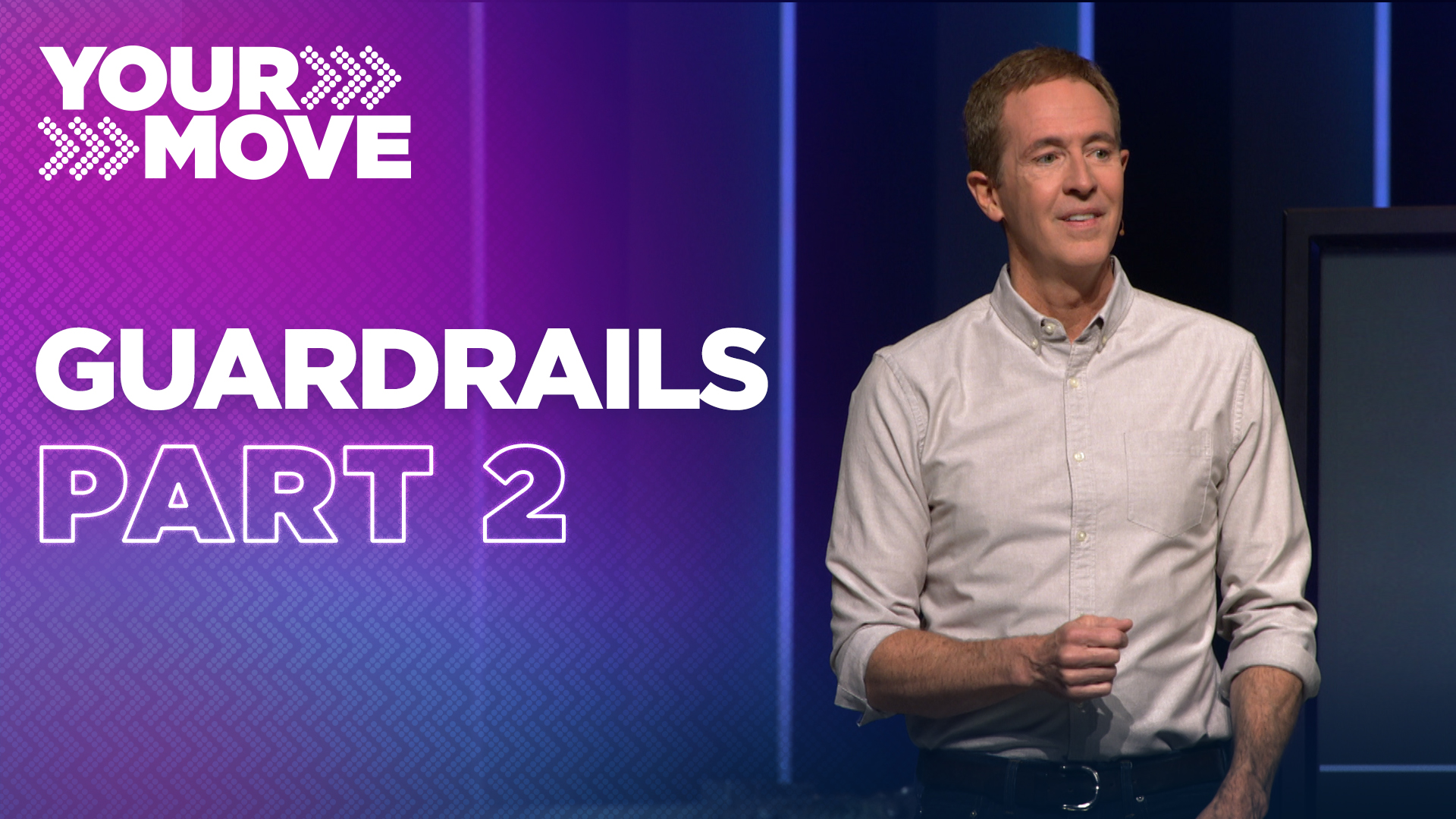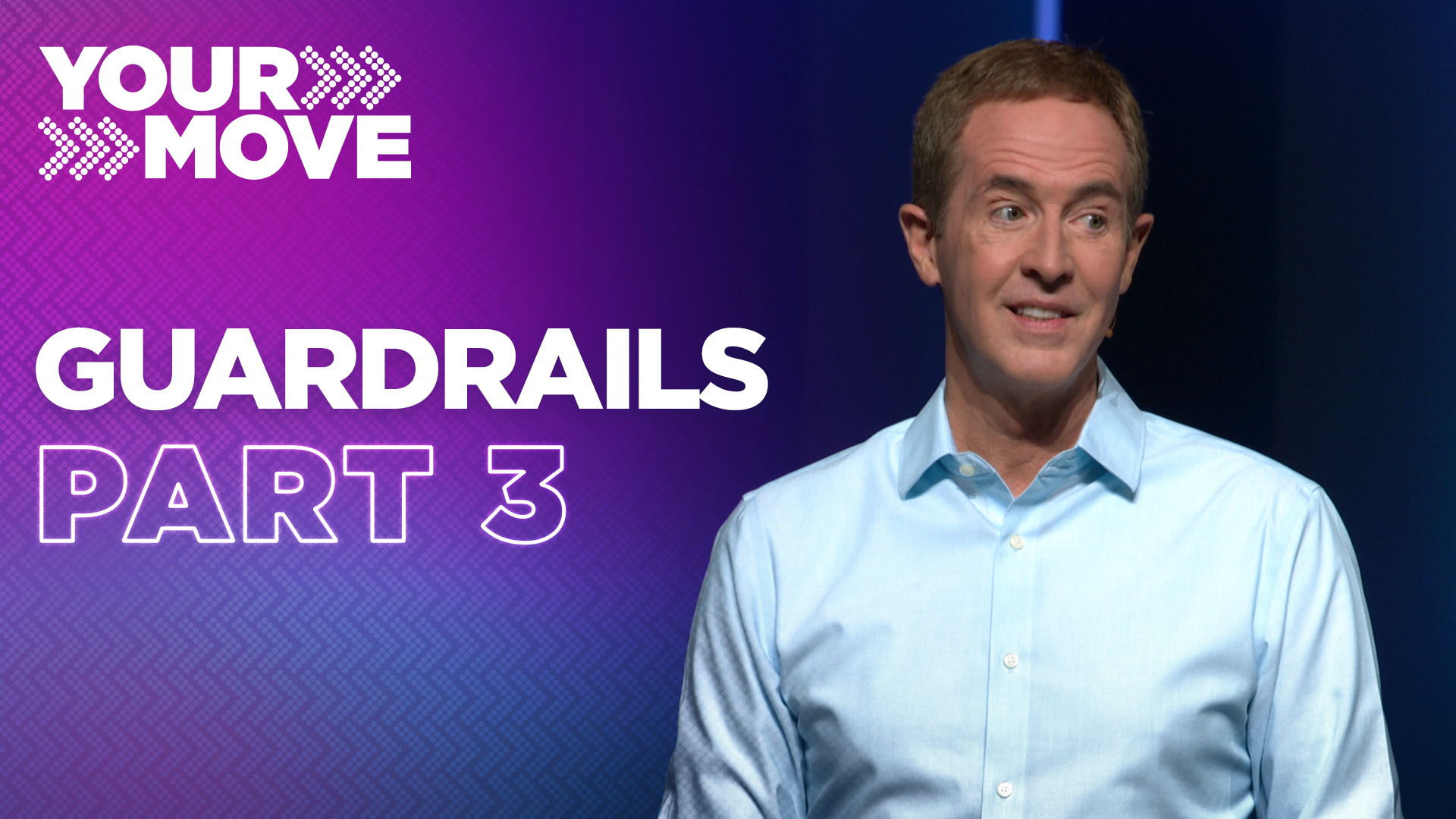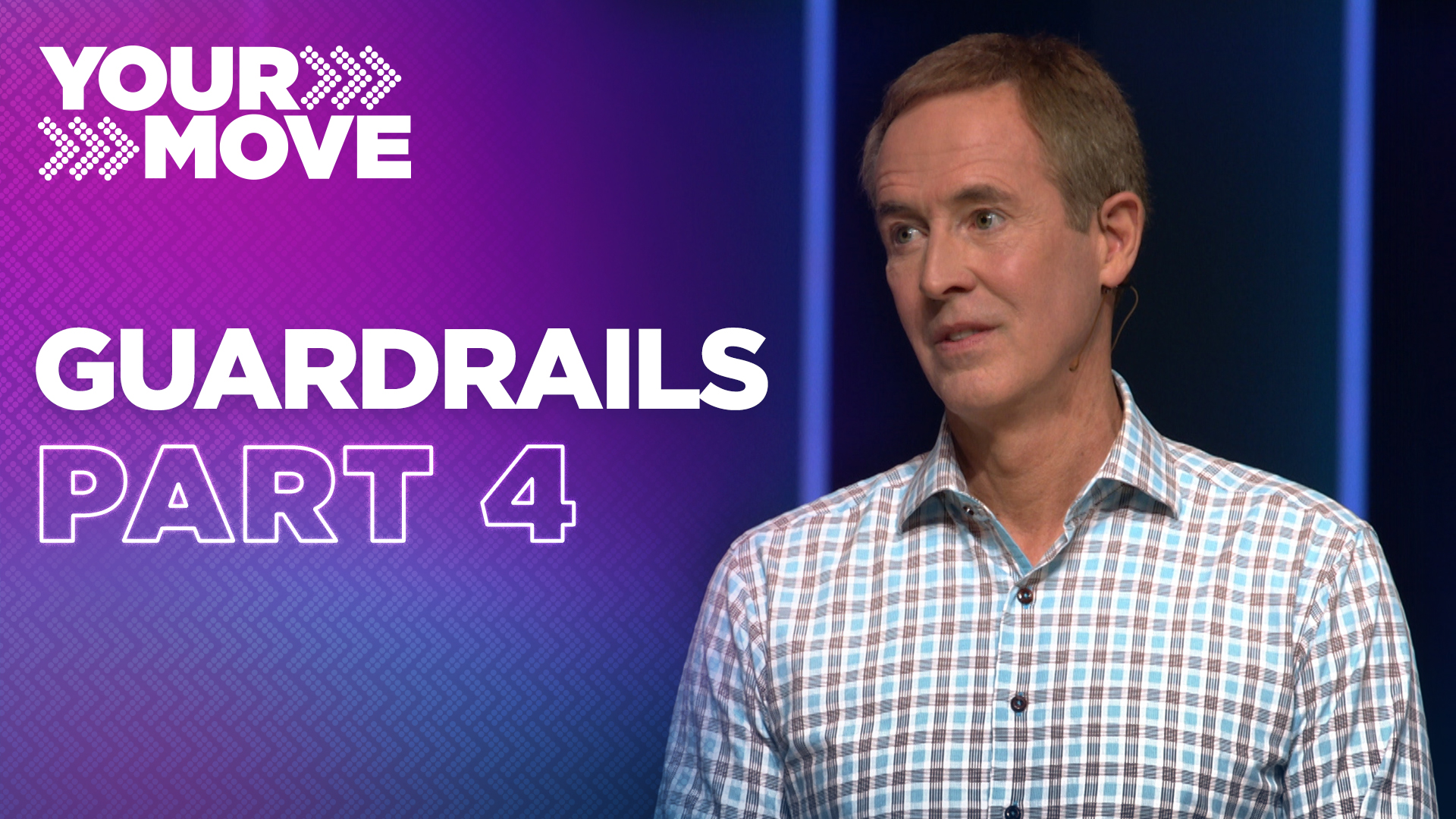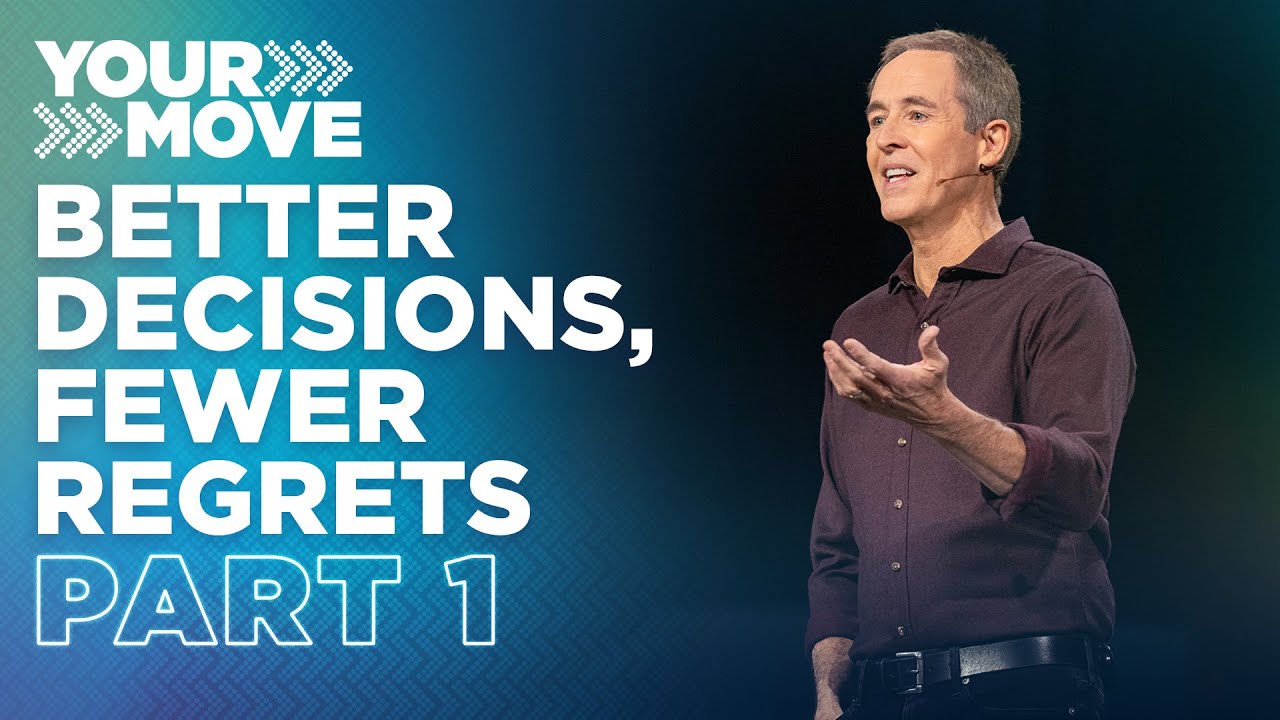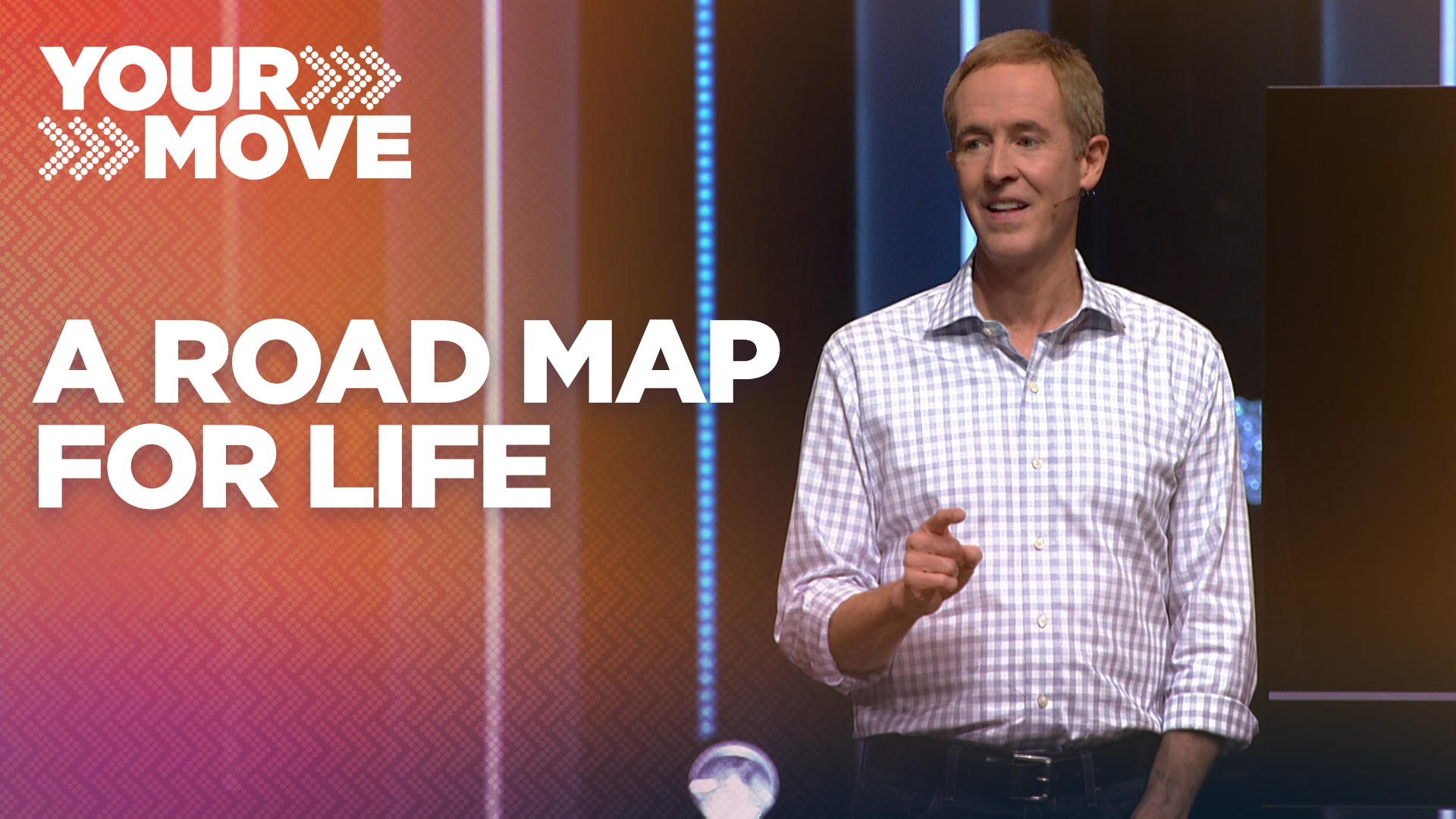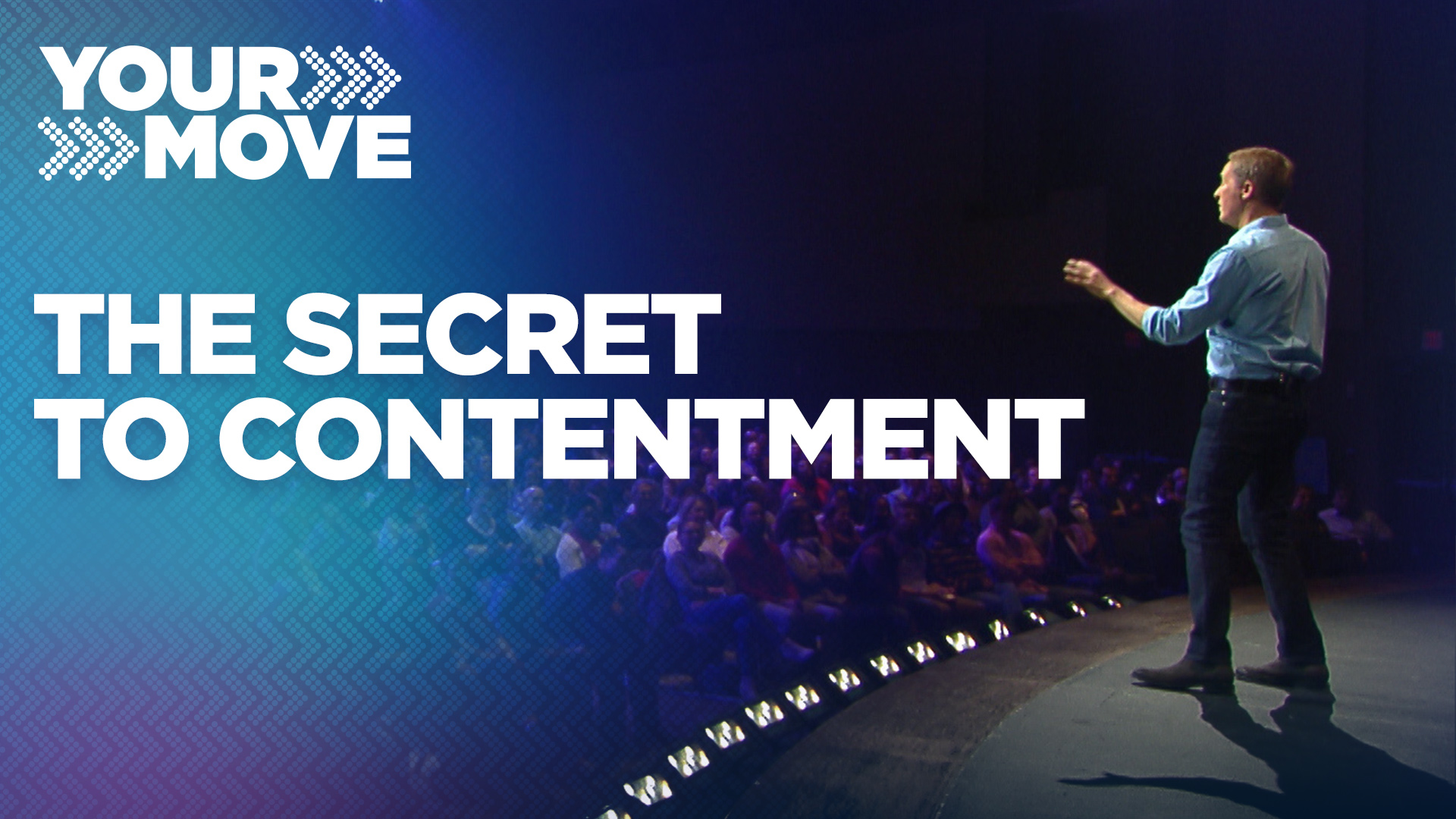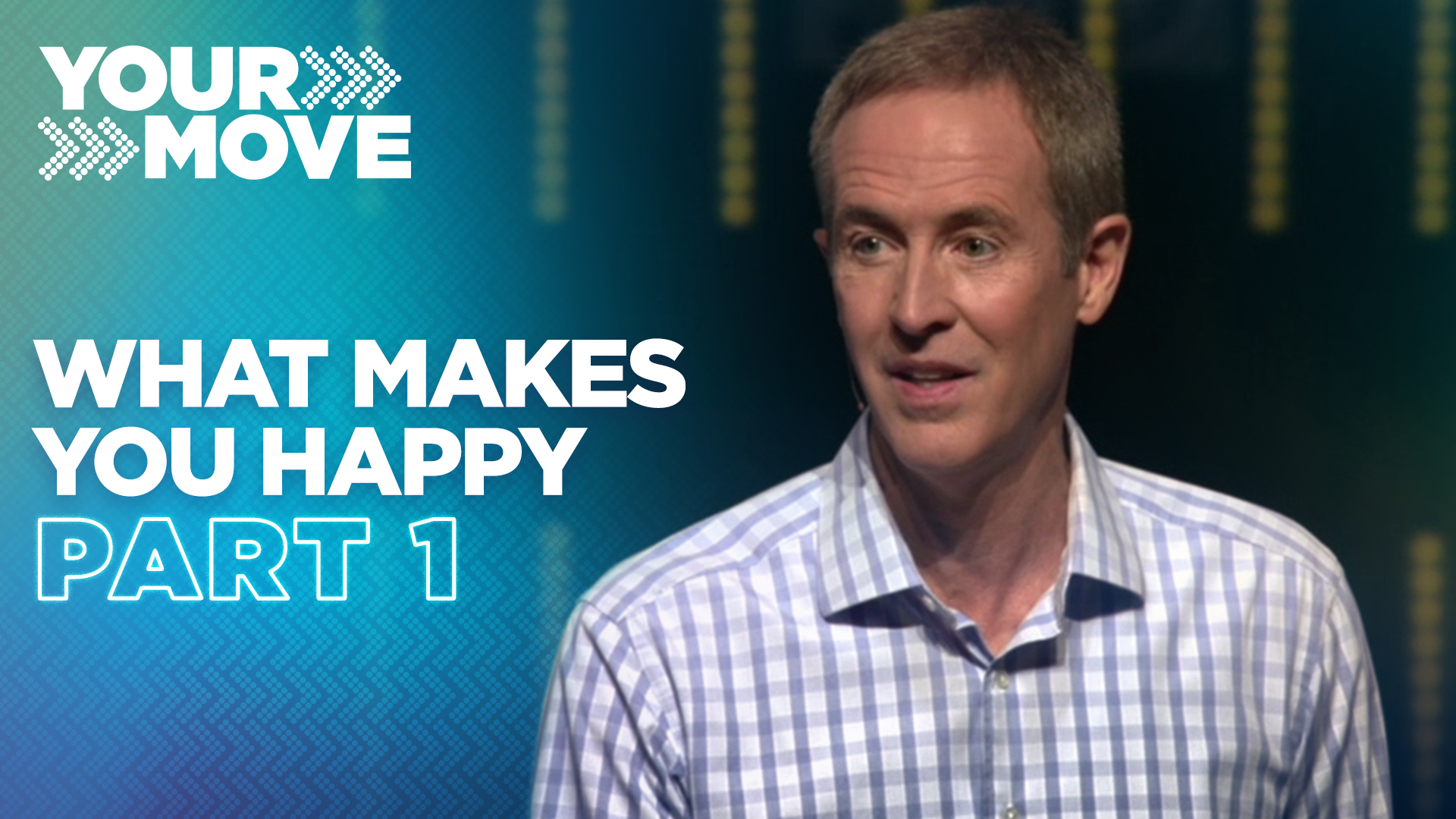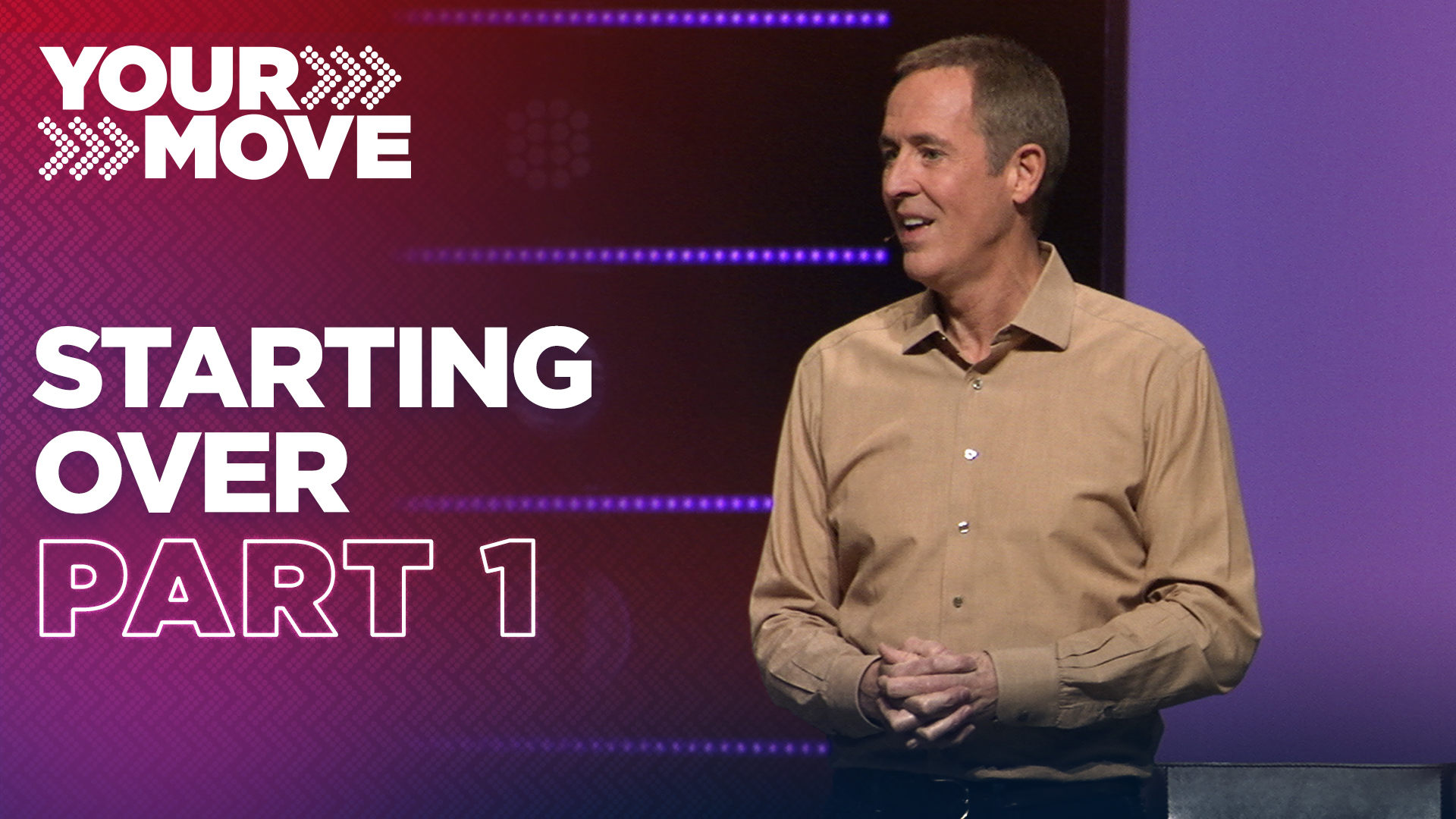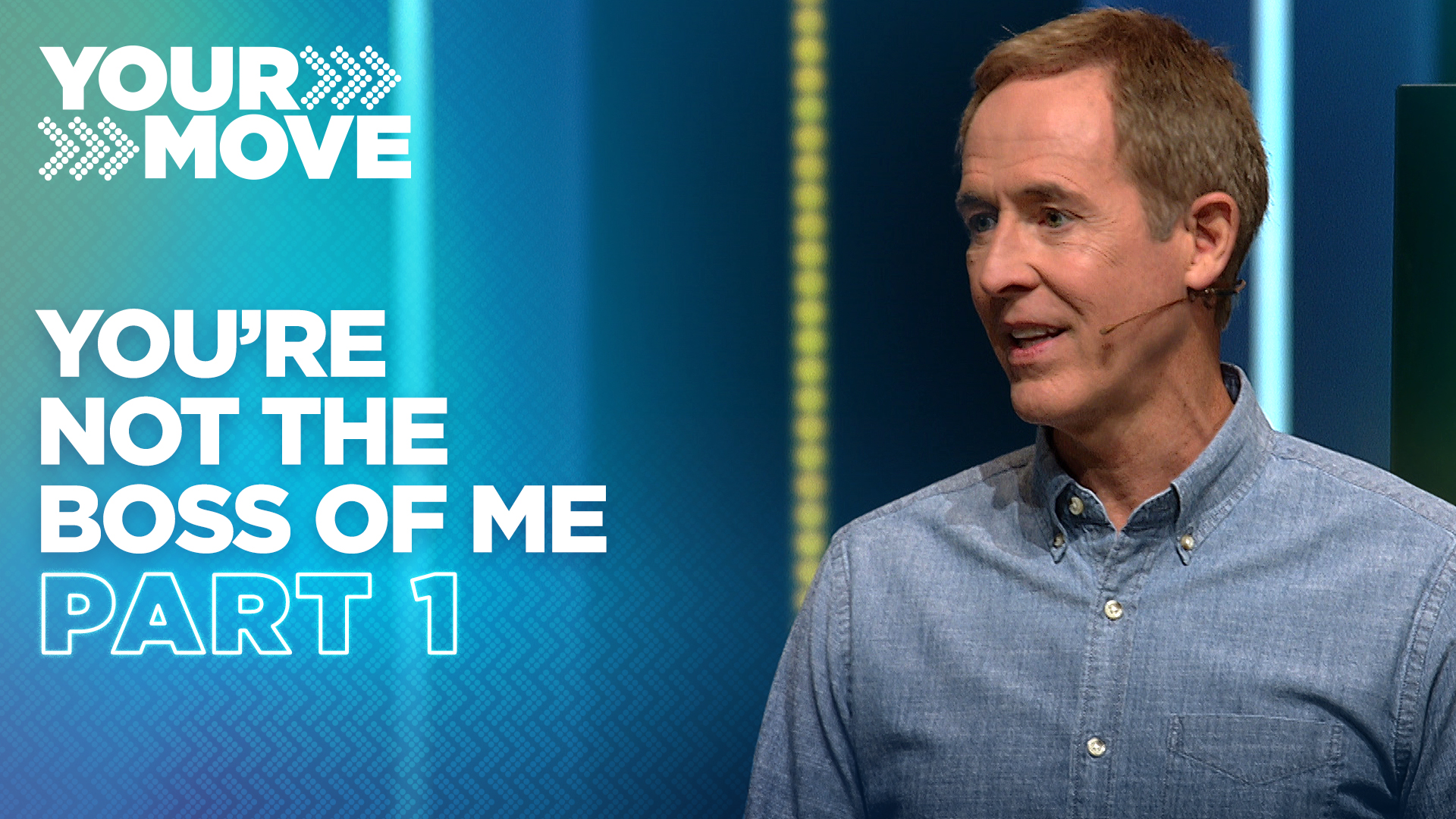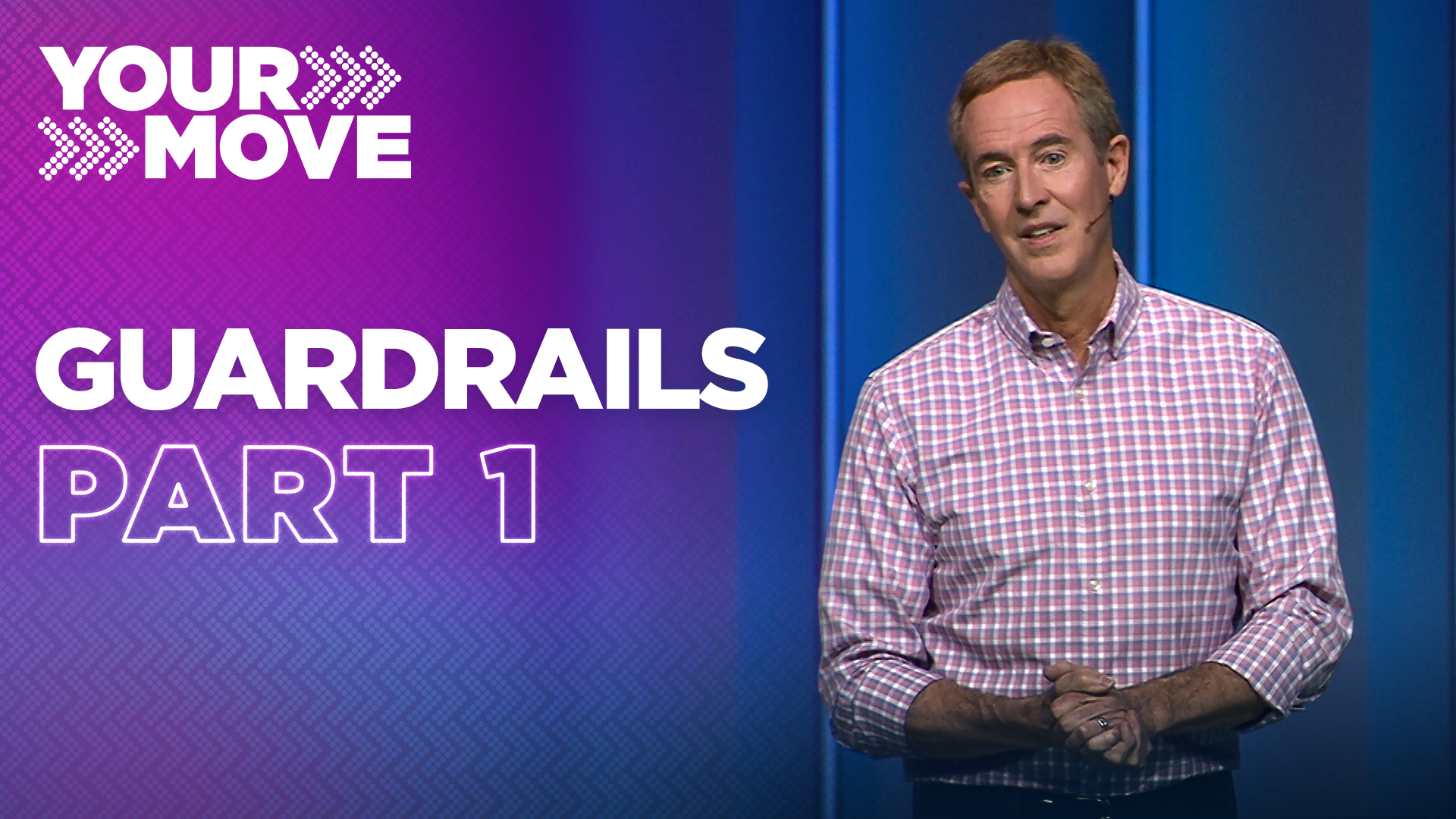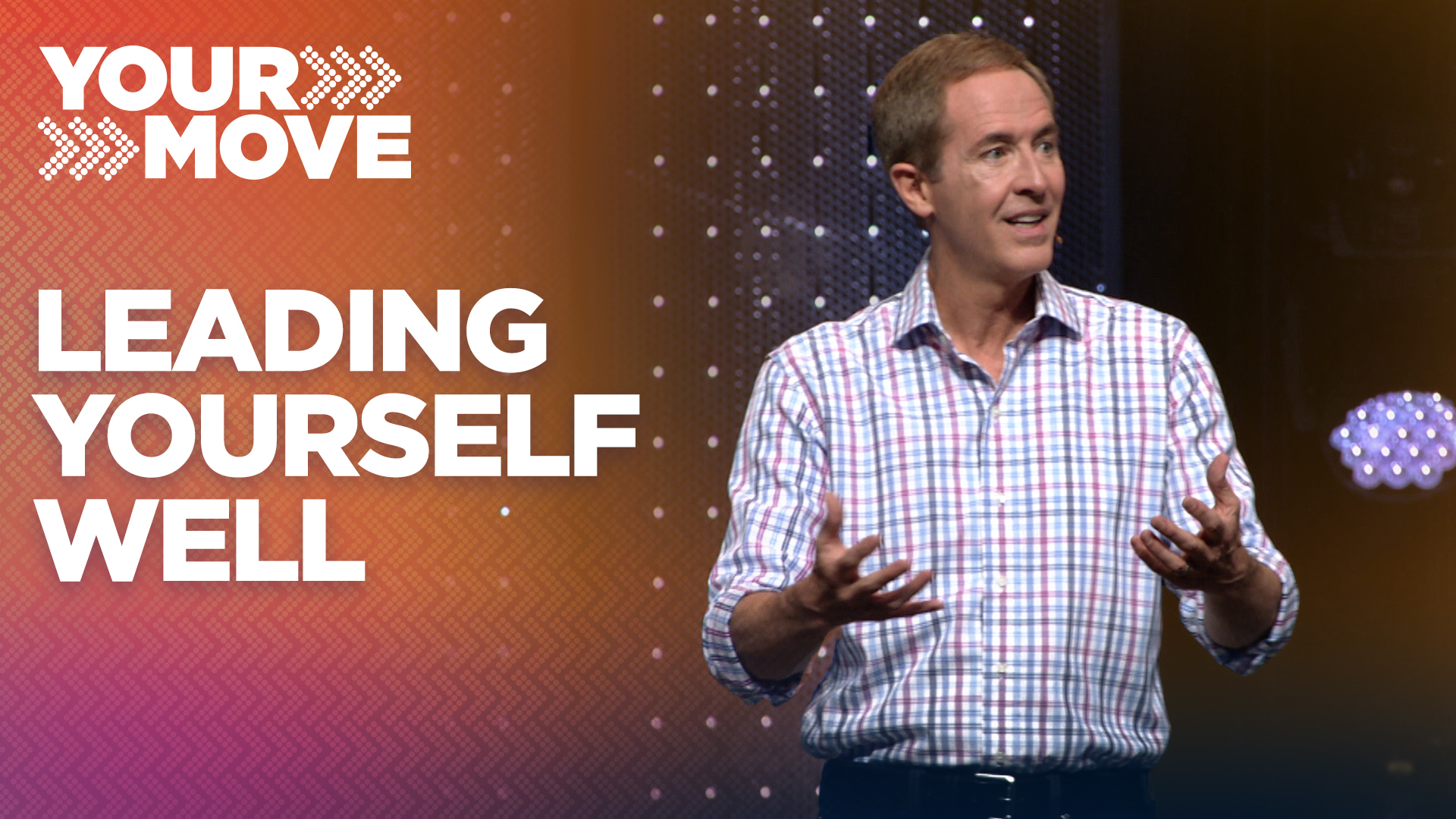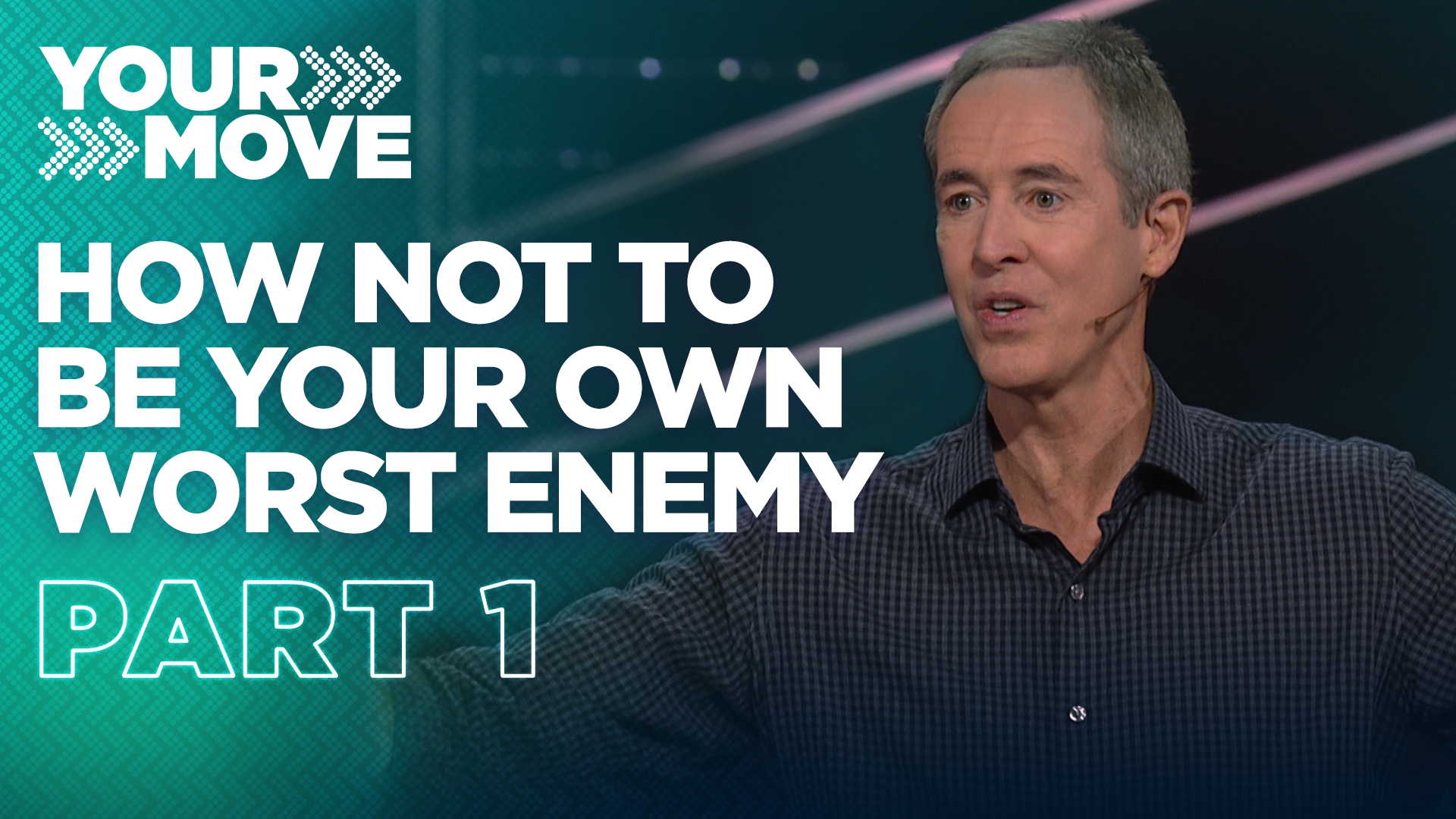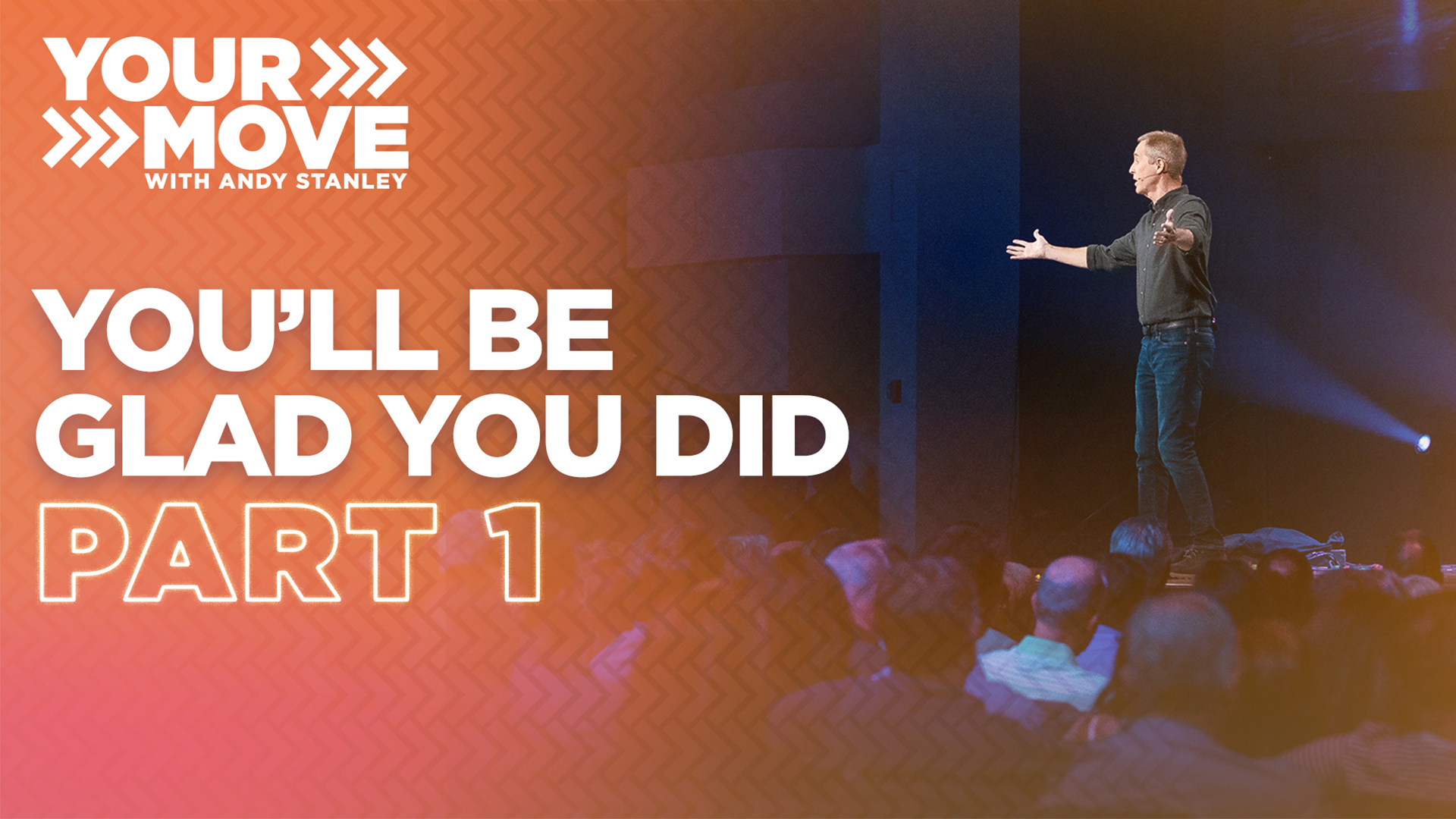Our friends influence the direction of our lives. So what do we do when they’re leading us somewhere we don’t want to end up?
- In what ways, good or bad, did your friends influence you growing up?
- Personal guardrails are standards of behavior that direct and protect us from damage. What are the pros and cons of guardrails?
- Has a friendship or relationship ever led you to do something you later regretted? Explain.
- Is there someone in your life who influences you to make good decisions? What’s one thing you can do to dial up that person’s influence in your life?
- Do you have guardrails in your friendships? If not, what would happen if you created them? What first step would you need to make?
NOTE: The following content is a raw transcript and has not been edited for grammar, punctuation, or word usage.
Have you ever met someone that later you wish you’d never met?
[laughter]
Nervous laughter. Yes, and no elbows and don’t lean over and look, okay. Have you ever met someone that you wish you’d never met? Or maybe that’s too personal. How about this. Has your wife or your husband ever met someone you wish they had never met? That maybe they wish they’d never met? Or maybe they’re a little bit too happy that they met? You know what I’m talking about? Or maybe, have your kids ever met people that you wish they had never met? And all of us have a story and the answer is, yes. And this is such a strange dynamic, but we’re gonna talk about it for a few minutes. It’s folks we’ve met, and this is true. It’s folks we’ve met that are connected to our greatest regret. I don’t know what your greatest regret is but I bet you weren’t alone. I don’t know what your greatest regrets are, but chances are you weren’t alone or if you were alone, it was still connected to a relationship. And this is such a strange thing because our greatest regrets involve people oftentimes. And the people they involve, they’re not our enemies. They’re not people that we’re hostile with. We’re on our guard around people that have hostility toward us. But they’re usually with our friends. Our greatest regrets are usually connected with people we’ve met and we considered those people friends. That’s something to think about.
Now everybody knows what a guardrail is on the highway, but a quick review. A guardrail is a system. It’s a system. A system. A system designed to keep vehicles from straying into dangerous or off limit areas. And we said last week that guardrails do at least two things, they direct us and they protect us. They direct and they protect. And the other thing about a guardrail, and this becomes important as we talk about how this applies to our lives, is that guardrails are never placed in the danger zone. Guardrails are never placed in the danger zone. Guardrails are actually placed in the safety zone. And no one argues with this, no one argues that, “No, they need to give us those extra three feet to drive in.” Nobody argues with this idea. Nobody would argue that we need to put the guardrail in the danger zone or even on the line. When it comes driving, we understand the idea of a margin for error. The other thing about a guardrail is that they’re designed to minimize damage to your vehicle. If you hit a guardrail, you will have to go to a repair shop, but you may not have to go to the hospital. The damage done by hitting a guardrail is much less than the damage done to you and your vehicle if there was no guardrail.
But the reason that we named this entire series Guardrails is because the highway is not the only place we need guardrails. We need some financial guardrails. We need some relational guardrails. You may need some professional guardrails. And the truth is, your greatest regret, your greatest regret, your greatest regret may have been avoided if you had had some financial guardrails. Some moral guardrails, some relational guardrails, and again, maybe even some professional guardrails. Now the pushback on all of this, throughout our series together, is that we live in a world that doesn’t value this idea. We live a world that essentially resists guardrails. That culture doesn’t encourage guardrails. In fact, as we’ve discovered, and as you will discover, oftentimes people in our culture are critical of us when we establish guardrails because personal guardrails are like personal rules.
And number one, I don’t like rules and you don’t like rules, so we don’t like establishing rules for ourselves. But oftentimes, when we establish rules for ourselves, it’s a little bit threatening to the people around us. Culture doesn’t like guardrails. Culture is content with painted lines. Just lines on the side of the road. But the interesting thing is this, and we’ve all experienced this or we’ve all maybe participated in this. That even though culture doesn’t celebrate guardrails, at the same time, culture will shame us, and blame us, and mock us when we end up in a ditch financially. Or we end up in a ditch in our marriage, or we end up in a ditch with one of our kids, or an important relationship professionally. This in an incredibly important topic. It’s a little bit complex. It doesn’t fall so much in the category of right or wrong as we’re gonna discover It really falls more in the category of wisdom. And that makes it a little tricky. And that makes it a little intangible. And it makes it a little soft and perhaps even a little mushy. But it’s extraordinarily, extraordinarily important.
Today specifically, I wanna talk about your friends and your associates, and what it means to establish guardrails in the realms of our friends and our associates. These are the people that you run with, these are people that you play with, these are the people that you work with. It’s the folks that are a part of your life on an ongoing basis. And the reason we need guardrails relationally, and the reason we need guardrails even with the people that we consider our friends, is what we’ve already said. It’s the folks we’ve met that generally are part of our greatest regret. Now the pushback today a little bit, just to jump ahead, is that as I’m talking you may be tempted to think, “Gosh. You’re being so judgmental,” because we’re talking about your friends. “These are my friends, these are the people I work with. They’ve been in my life a long time and it sounds like you’re asking me to be judgmental.” So I wanna talk about that right up front because this is a big, big deal. This is not about being judgmental. This talk today is about exercising good judgment.
And there’s a big difference and I wanna explain the difference real quick and then we’ll jump into this content. Being judgmental is me half-forming an opinion about you. Being judgmental is forming an opinion about what you should do, what you should stop doing. Being judgmental is setting myself up as a what? A judge, right. If I’m judgmental, I’ve set myself up as a judge, and I’m judging your behavior. Judgmental is when I draw a critical, or maybe a harsh conclusion about you expecting you to act or be different.
But good judgment is different. Good judgment is about me. Good judgment is about drawing conclusions about my life. Good judgment is in light of my past experience, the things that are most tempting to me, where I’ve been in the past, what happened in that last relationship, that last marriage, the way I grew up, in light of my past experience, in light of my current circumstances I’m really mad, my current circumstance is just broke up, current circumstance is just started this new job, in light of my current circumstances, in light of my future hopes and dreams, what is the best thing, or what is the wisest thing, not for everybody else to do, I’m not judging you, what you do is none of my business. What is the wise thing for me to do? Judgmental assumes something about the other person. This is all about you, this is how you should respond in light of your future hopes and dreams.
When you were a child, when you were growing up, when you were in middle school or high school, your mom or dad… Or your mom and dad, or your uncle or your grandparents, or whoever had responsibility for you, they were, if they were good grandparents, aunts, uncles or parents, they were paranoid regarding your friends. They were. They paid such good attention to your friends. In fact, there were times when they said, “You can’t go over there, she can’t come over here, you can’t date her”, they would forbid you. Some of your moms read your journals. Girls, if you… Ladies, if you had journals they would sneak in there and read your journal and you’d find out, you’d be so angry and you’d put tape on the bottom of your door to see if anybody came in your room.
[laughter]
And then your mom took the door off, I know that’s a thing, [laughter] take the door off. We never did that, that’s odd, but hey, sometimes you gotta do what you gotta do. Some of you, they were so extreme and the situation was so extreme maybe they pulled you out of that school and put you in a different school. Maybe they just packed up and moved, just left the community, left the state, “We’re going to London. [laughter] We gotta get you out of this environment.” And when you were on the receiving end of that, your response was like most kids just… As long as your… “You’re being so judgmental, you’re being so judgmental, you’re judging my friends.” Well, now, many of you are parents, and you are paranoid-er, okay?
[laughter]
And the reason you’re paranoid-er is because you remember who? You remember you, right? You remember your friends, and you look back… In fact, when I asked the question have you ever met somebody you wish you’d never met, some of you went as far back as college. Some of you went as far back as high school. What your momma knew and what you know is that this is a thing. And the reason is because you know, as I said, you know what your mama knew, that our friends, that your kids’ friends, that our friends determine the direction and the quality of our lives. This is just true, that our friends determine the direction and quality of our lives. Let me say it this way, that the thing that makes friendship marvelous is also the thing that makes it so hazardous and so dangerous.
Now, if your experience doesn’t prove this to you, or that’s not enough evidence, my assistant, Diane Grant, sent me an article last week, because she knew I was talking about this, and it’s an article written by a neuroscientist, Moran Cerf, who is a professor at Northwestern University, and for years, for over 10 years, he has been studying relationships, and decision-making, and the relationship of decision-making on relationships. And here’s what he has discovered, that what we have observed about people influencing other people isn’t just behavioral, it’s actually neurological, that something happens in your brain. In fact, in this study, he determined or they’ve discovered, that our brainwaves, that the brainwaves of people when they spend time together, actually begin to look identical. That the brainwaves, before the behavior, before the attitude change, there is something that happens on the inside, in our brains, when we spend time with other people. Brainwaves begin to line up.
Now, that’s scary. That can encourage you or discourage you. Here’s what he says, a couple statements from the article. He says, “The more we study engagement, we see time and time again that just being next to certain people actually aligns your brain with them.” Look to your left. Look to your right, [laughter] okay. That while we sit here together, your brainwaves are being aligned with him. In fact, it just happened. It did. He goes on and he says this, and this is pretty powerful, “If people want to maximize happiness,” that’s me, “And minimize stress,” that’s you…
[laughter]
Don’t we all wanna maximize happiness and minimize stress? Look at this conclusion he draws, “They should build a life that requires fewer decisions. How? By surrounding themselves with people who embody the traits they prefer.” That if you surround yourself with people who embody, that is, live out the traits you prefer, he says, “Without any effort, without any decision on your part, your brain will begin to line up with the people who are becoming the kind of person that you ultimately want to be.” Now, think about that. Last statement, he says this. He says, “Over time, they’ll naturally pick up on those desirable attitudes and behaviors.” But the flip side is true as well. Over time, you can pick up on undesirable attitudes and behaviors with no effort. Just being in proximity, simply doing life with, being with people who are moving in a particular direction, something happens in your brain and in my brain. Now, is that judgmental? No, that’s just true. This isn’t about judgmental. This is about exercising good judgment. If this happens automatically, what should you do? If this happens automatically, how do I harness that? How should I respond?
This isn’t about being judgmental. [chuckle] Come on, look. Come here. This is about your future. Your future will be impacted by the people that you do life with.
Now, interestingly enough, 3,000 years ago, before we were able to look at the brain, King Solomon, Israel’s third king… There was Saul, then David, and then his son, Solomon, became king… Considered one of the wisest men who’ve ever lived, some people say the wisest man who will ever live, 3,000 years ago, he makes a statement that punctuates what we have finally discovered, 3,000 years ago. Here’s what Solomon wrote, he said, “Walk with the wise and you… ” Automatically, with no effort, no intentionality, you don’t have to write anything down, you don’t have to remember anything, you don’t have to study for a test, “Walk with the wise and you will, over time, become wise.” It’s just gonna happen automatically.
Now, what is wisdom? We’ve talked about this. Wisdom is somebody who understands that life is connected, that the dots connect, that my past connects to my present, which is gonna be some sort of predictor of my future. That’s what wisdom is. And he says, “If you spend time with wise people, over time, you will become wise,” that wisdom is contagious. Imagine that. It just rubs off. Do life with the wise and you will be wise.
And then there’s a second part of this for or the… The way I memorize this a long, long time ago the word was but because it’s a contrast he says, “But or for a companion of fools ultimately suffers harm.” Now we don’t use the word fool because you don’t wanna call someone a fool but in the Jewish Bible in the Jewish scriptures a fool was a person who did not live carefully. A fool was somebody who did not understand about how the past connects to the present that’s a predictor of the future. A fool is somebody that just lives for the day.
But the interesting thing about what Solomon said is what he doesn’t say, let me read it to you again, “Walk with the wise and you become wise.” Okay if I hang out with wise people I become wise. You would expect him to say hang out with fools and you’ll become a fool but he doesn’t say that. What Solomon says is that it’s worse than that because if you spend time with, surround yourself with, do life with fools over time you’re not simply gonna become a fool you’re going to suffer harm. That is when their life goes bad it’s a proximity thing. The closer you are to them the greater the odds of something bad happens to you. As they go you go. To which we say yeah but I don’t do what they do to which Moran Cerf, the neuroscientist, would say yeah but stick around ’em long enough and you probably will because your brain waves are gonna line up. So Solomon says it’s worse than becoming a fool you’re actually gonna catch the shrapnel from their bad decisions. In other words, friends, this is what Solomon is saying, friends who aren’t careful with their lives won’t be careful with your life. Friends who aren’t careful with their health they’re not gonna be concerned about your health. Friends who aren’t careful with their marriages they’re not gonna be careful and try to guard your marriage. Friends who aren’t careful with their finances, they’re not gonna try to guard and be careful with your finances. Friends who aren’t all that concerned about their reputation, they’re not gonna be all that concerned about your reputation. Friends who don’t have any kind of faith or don’t have any concerns about faith aren’t gonna be very concerned about your faith. And friends who don’t seem to care about the future the last thing they’re gonna worry about is your future.
This is good judgement. This is a big deal and this isn’t about middle school and high school, this is about all of us. Friends who don’t take care of themselves won’t take care of yourself. Friends who lie and cheat, you know this. Friends who lie and cheat, they feel better when you what? Lie and cheat. So again, friendship can be awesome but friendship can be treacherous. Friendship requires some guardrails.
Now just a reminder the point of a guardrail isn’t to keep you from just doing bad things, the point of a guardrail is to light up your conscience so that you know you’re getting close to doing bad things, or the way I said it here, the point of a guardrail is to light up your conscience before we veer into the danger zone. Remember a guardrail isn’t in the danger zone, and a guardrail isn’t right on the line, the guardrail is inside the safety zone and again this is why we resist. But for the next few minutes I wanna make five suggestions as it relates to guardrails, as it relates to your friendships and your associates.
Now I know this, in some cases you don’t have total control over who you spend a lot of time with. I get that, we’re gonna talk about that in just a minute. But I want to encourage you, if could get on my knees and plead with you and I thought it would do good. I wanna encourage you to consider these, and again I don’t want you to listen to what I’m about to say through the filter of your kids or your grandkids. It’s gonna be hard not to do that or some friends that you have that you wish were here or you wish we’re watching. I just want this to settle in over us as we consider our future because your friends and your associates impact the direction of your life. So here’s five suggestions. Again these aren’t rules, you don’t need to write these down. You may wanna go back and listen to this or look at these later, but five suggestions just to get you thinking about guardrails as it relates to folks you’ve met so that they won’t become the next regret.
Here’s the first one. When it dawns on you that your core group isn’t moving in the direction you want your life to be moving that should light up your conscience. When it dawns on you, you know what we love the same music, we love the same food, we love the same artist, we have so much in common, but when I look at the direction this group is moving in it’s not really the direction I want my life to move in. That’s a warning, that’s a guardrail, that’s not a good or a bad thing, that’s a wisdom thing and you gotta pay attention to that because relationships are not static. Relationships are either growing or decaying, they’re getting better or they’re getting worse.
Where people are heading is a good indicator of where they’re leading and none of us think about our group of friends as leading us anywhere but here’s what you know in hindsight. [chuckle] Your friends ultimately lead you. Just like you are ultimately leading other people through a group of friends. This is just the nature of relationships. So, when it dawns on you, your core group isn’t moving in the direction you want your life to be moving, that should light up your conscience.
Here’s the second one. When you catch yourself pretending to be someone other than who you really are, that should light up your conscience. In other words, when you catch yourself nodding and you’re thinking, “I don’t believe this, but my head’s doing this. What’s going on?” [laughter] When you feel the pressure to pretend to be somebody other than who you truly are, that’s a red flag. That should light up your conscience. That should make you rethink or reconsider the nature of this relationship.
Because as you know, your views and values hopefully are being shaped around things that are gonna serve you well in the future. But when you find yourself agreeing on the outside with things you disagree on the inside, hey, that’s a red flag. Again, that should light up your conscience. Don’t settle for friends who force you to pretend to be somebody you’re not. Because here’s why. Because you are lying to them, which means you’re not a good friend and if you lie to yourself long enough, you will become someone other than yourself. This happens all the time, and pretending is lying and pretending is never healthy.
Third one is this. When you feel pressure to compromise. Not once you’ve compromised. That’s… We’ve gone past the guardrail into the ditch. Not when you’ve actually compromised, but let me put it this way. When something that before wasn’t a real temptation but suddenly it’s become a live option. That should light up your conscience. When something that’s never been a real temptation before becomes a live option, you’ve always just said, “No, thank you. No, I’m gonna go. I’ll go on home now. You guys go or you ladies you go, I’m just… ” And you find yourself driving home thinking, “You know what I think? I think, I’ll go. Or no, I shouldn’t.” When what has never been a temptation, never been an issue, never been a problem before. When it becomes on the inside, when it becomes right here, a live option, a real consideration, “Maybe I should, maybe I should rethink that. There’s probably nothing wrong with that. You know, they’re always inviting me.” That should just light up your conscience. Now what should you do with that? I don’t know, that’s up to you. But it should bother you. It should bother you. It should bother you. Again, not when you’ve crossed that line. When suddenly you find yourself imagining what it would be like, if you had.
The next one, number four, is this. When you catch yourself thinking “I’ll go, but I won’t participate.”
[laughter]
Yeah, you laugh. “I’ll just go, but I won’t participate.” Let me just ask you a question, ’cause it’ll bring instant clarity to this. Would you buy this from your 14-year-old daughter? [laughter] “No. It’s 12 guys. But me and my girlfriend are gonna go. But Dad, they’re gonna be doing bad things but I’m not going to participate.” “Oh honey. You just go right ahead. That’ll be fine.”
[laughter]
No, you give your daughter two options. “Either you stay home or I go with you. You choose, okay? You have two options. I’m not saying no, I’m just saying there’s gonna be three guys there. You’re looking at the third one, right?”
[laughter]
So, we wouldn’t buy this from our kids or our younger brother or sister or nieces and our nephews or our granddaughters or grandsons. Why would we buy it from ourselves? When you start that conversation, I’m not saying you shouldn’t go. I’m just saying, when this conversation starts in my head or your head, it should bother us. It should ding our conscience. We just bumped up against a guardrail. Very little damage done, but pay attention to the conversation you’re having in your heart when you catch yourself thinking, “I’ll go, but I won’t participate.”
The last one is this. Is when you hope the people you care about don’t know your whereabouts. When you hope the people you care about don’t know your whereabouts. And even once you get to where about you’re going, even if you do nothing wrong. Even if you don’t break any laws, even if you’re not, in any way, unfaithful or do anything to embarrass yourself or your family. The fact that in your heart and in your mind, you have begun, don’t miss this, you have begun, this is the nucleus of a lie. You haven’t lied yet, but if you think you would be tempted to lie so they don’t know where you are or who you are with. That should bother, bother, bother, bother, bother you. Not because you’ve done anything wrong. But because you have established a guardrail. If you wouldn’t wanna have to tell ’em. If you hope they never find out, that should bother you. Come on, come on. We’re adults. That should be enough. That should tip you off. Okay. If I don’t want the people that I care about to know where I am, to know my whereabouts then I have no business going.
Now if… I get this. If this sounds kinda over the top and narrow and so judgmental. Or maybe, “Oh, this is good for kids. But not for me.” I get that. But here’s why I’m adamant. Here’s why I’m sure. Here’s why, again, if I could get on my knees and beg you to do this and you’d do it.
Here’s why I feel so strong about this. Partly because of what I do and the stories I hear. Partly because of the world we live in. Partly because I know myself. And partly because tomorrow morning hundreds of people in this community, thousands of people in our city, maybe tens of thousands of people in our state, and hundreds of thousands of people all over our country are gonna wake up tomorrow morning stumble in the bathroom look in the mirror and wonder. They’re gonna wake up and look at who they woke up with and they wonder. They’re gonna see in the mirror a person that they didn’t think that they would ever see in the mirror and they’re gonna wonder, and they’re gonna wonder how did this happen? How did this happen to me? How did I get here? Who’s life is this? And the answer to all of their questions is the same answer. Our friends still determine the direction and the quality of our lives. It’s why you need guardrails, it’s why I need guardrails, it’s why we need some internal rules that light up our conscience, not when we get into the danger zone but long before we get there.
Now Jesus said something so significant but we missed this. This is one of those little subtle Jesus sayings, it’s not a popular one, not a famous one but it should be. He makes this statement that’s so powerful but it sort of flies under the radar because of the context in which he said it. And again because we don’t talk about it very much. Here’s his response to the people that just were not going to let him win the argument, no matter what he says they were not gonna let him win.
Finally one day he says this, “Wisdom,” I love this. “Wisdom is proved right by all her children.” In other words, time will tell. Wisdom always has the last at bat. Wisdom always has the last word but because wisdom is not an absolute there is always a counter argument to be made. In other words, these five suggestions I’ve given you, I guarantee you, you are smart enough to go home or get in the car with your friends or your family or to sit down with me and give me a counter point for all of those things why that’s the most ridiculous thing in the world, why that’s silly Andy you shouldn’t tell people like that, you shouldn’t plant those kinds of seeds. You’re so judgmental. You’re making everybody be afraid, and you could win the argument. Because wisdom is not an absolute. Wisdom plays in the gray space. Wisdom plays just inside the borderline oftentimes from relational, financial, and personal disaster.
Put it this way, wisdom will allow you to win the argument. But ultimately, you’ll lose in life. That was Jesus’ point. That wisdom is proved right not in the courtroom, not in the debate. Wisdom is proved right by the outcome. And establishing personal guardrails as it relates to friends and associates. We’re establishing personal guardrails. It’s not a lack of concern for other people, it’s not a lack of love for other people. This isn’t even about other people. It’s about your future hopes and dreams. Your future marriage. Your future relationship with your kids. Your future finances. It’s about being in a position to help those friends that you may have had to distance yourself from once they begin to reap what they have sown. It’s not a lack of love, in fact, it’s an expression of love. Because by remaining in the safe zone you are better positioned to help other people and to help some of those very same friends once they cross those lines. And life becomes to come back, life begins to come back, and life comes back and begins to haunt them. When the result of their decisions begin to come back and show themselves in their lives, their relationships, their finances, and their families.
Wisdom, Jesus was right. Wisdom is proved right by all her children. Walk with the wise and become wise. As Paul said, be careful how you live, not as unwise but as wise, making the most of the day for the days are evil. So, I know, I wanna encourage you. Think about what we’ve talked about to establish some personal guardrails as it relates to friends and family members.
So, here’s the bottom line today, establish some guardrails. You’ll be glad you did or you’ll wish you had. And unfortunately I know, some of you already wish you had. And we’ll pick the discussion up right there next week.


